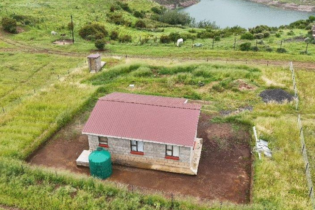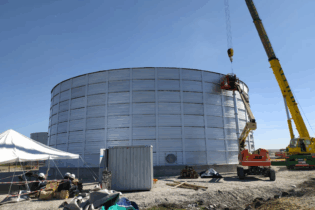Ahead of President Cyril Ramaphosa’s State of the Nation Address (SONA), Consulting Engineers South Africa (CESA) CEO Chris Campbell says there can be no doubt about the key deliverables which should be a national priority in the coming months.
“An efficient and effective Covid-19 vaccine roll-out must be the focus for South Africa in 2021. No sector will be able to truly thrive until we have achieved what is necessary to vanquish the virus,” he says. Campbell says that without an economy which is fully operational, infrastructure projects are sure to suffer. “Government must action a transparent, credible and appropriately supervised vaccination programme”. However, Campbell points out that whilst the vaccine roll-out must indeed be the core focus, it should not mean the death of infrastructure development and the construction industry, which was on its knees even before the pandemic struck. “We should be multi-tasking, and those public sector entities charged with driving the planning and implementation of approved and budgeted projects – such as those from SANRAL and many of our large metros – should be executed. We want to avoid simply having a perennial repetition of the Auditor General’s findings regarding unspent budgets whilst the construction sector is being ‘starved out’.” “In the upcoming State of the Nation Address, we would like to hear more about Government’s co-ordination with business, the medical sector, and civil society in the vaccine roll-out. We believe such a partnership is vital to the success of this ambitious but vital programme. But we also want to know that the momentum gained last year with the gazetted Strategic Infrastructure Projects is not lost. Implementation of key projects need not be delayed and could in fact go a long way in boosting the state of our ‘ill’ economy.” The delivery of much-needed medical infrastructure is not a new challenge, though the pandemic has undoubtedly exposed many of the pre-existing shortcomings. Campbell remarks that the inefficiency with which regulatory compliance issues are processed through public sector officials continues to hamper efforts to efficiently and timeously deliver the quality public healthcare facilities we need.“We know that delivery timelines can be compressed and expedited if our civil servants are committed. However, the problem lies in the lack of accountability and the application of a ‘tick box’ rather than results-orientated performance management.”
Campbell says there needs to be greater accountability for delivery timelines and a closer monitoring of progress and performance for infrastructure delivery. “The same can be said for the level of transparency, effectiveness and efficiency of the vaccine roll-out programme if it is to be successful.” He highlights that cross-sector collaboration and knowledge sharing between government and the private sector would greatly assist in improving on many of these inefficiencies. To this end, CESA is proud to be a part of Business for South Africa (B4SA), an alliance of volunteers from South African business working in collaboration with government. B4SA has seen great progress in recent weeks, engaging with various levels of government to discuss and assess the current vaccine roll-out plans and identify risks and omissions, while also indicating where support is needed. A B4SA team has been appointed that – under the leadership of the national Departments of Health and Finance – will provide the strategic direction for this process. Finally, Campbell adds that better communication on the vaccine and its value to the broader society is necessary, with the aim to demystify the drug and improving public perception. “There is much mistrust which could be overcome by making more information available and informing the public on what to expect. Currently, many have expressed apprehension about being vaccinated. People need to accept that our very own Ubuntu philosophy which encourages selflessness is now required to achieve the population immunity we need as a country. Failure to achieve this objective will result in a continued risk to lives coupled with a continued downward spiral of our economy, compromising many more livelihoods well into the future,” concludes Campbell.






